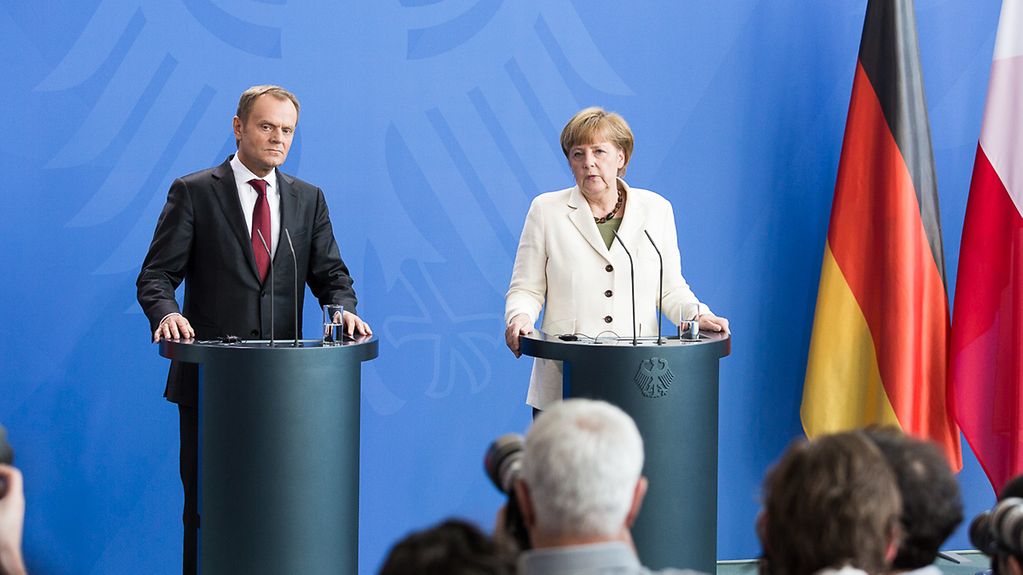Angela Merkel receives Donald Tusk
Chancellor Angela Merkel and Polish Prime Minister Donald Tusk have expressed their disappointment that Russia has so far failed to implement the provisions of the Geneva accord. At their meeting in Berlin they also called for secure energy supplies in Europe.
2 min reading time

Talks focused on the current situation in Ukraine and European energy policy
Photo: Bundesregierung/Denzel
Before their meeting at the Federal Chancellery, Chancellor Angela Merkel and Prime Minister Donald Tusk made their positions on Ukraine and Russia quite clear.
Telephone call with Vladimir Putin
The Chancellor reported that she had spoken by telephone that morning with Russian President Vladimir Putin. She had given him to understand that she was disappointed by Russia’s failure to take any genuine steps to implement the agreements reached in Geneva.
She called on President Vladimir Putin to use his influence over pro-Russian separatists in eastern Ukraine, to convince them to lay down their weapons. Only Moscow can steer these forces in the view of the Chancellor. In contrast to Russia, Ukraine has made an effort to implement the agreements reached in Geneva.
Meeting of EU ministers of foreign affairs on sanctions
Should Russia refuse to engage in efforts to achieve a peaceful resolution of the situation in Ukraine, further sanctions from the western side can be expected. In this case EU ministers of foreign affairs would meet soon, announced the Chancellor.
Joint European energy policy
The second focus of the meeting between Angela Merkel and Donald Tusk was European energy policy. This week the Polish Prime Minister proposed founding a European energy union, which would purchase gas and oil centrally for all member states. A solidarity mechanism would support member states suffering gas shortages.
The Chancellor declared her support in principle for the proposed closer cooperation in the energy sector. The EU must now see how to push ahead with the operational issues involved in cooperation of this sort. "We need a common energy single market and a shared structure." The first result of these common efforts is that today the EU is already in a position to pump gas from Slovakia back into Ukraine.
It is also important to better focus the strength of Europe both in terms of the energy sector and at state level. "The common energy policy must be more diversified than it has been to date," continued the Chancellor.
The European Council looked at energy supplies at its meeting on 20 and 21 March. The European Commission was instructed to draw up an analysis by June along with a plan for reducing the EU’s energy dependence. The topic will be on the agenda of the next Council meeting in June.